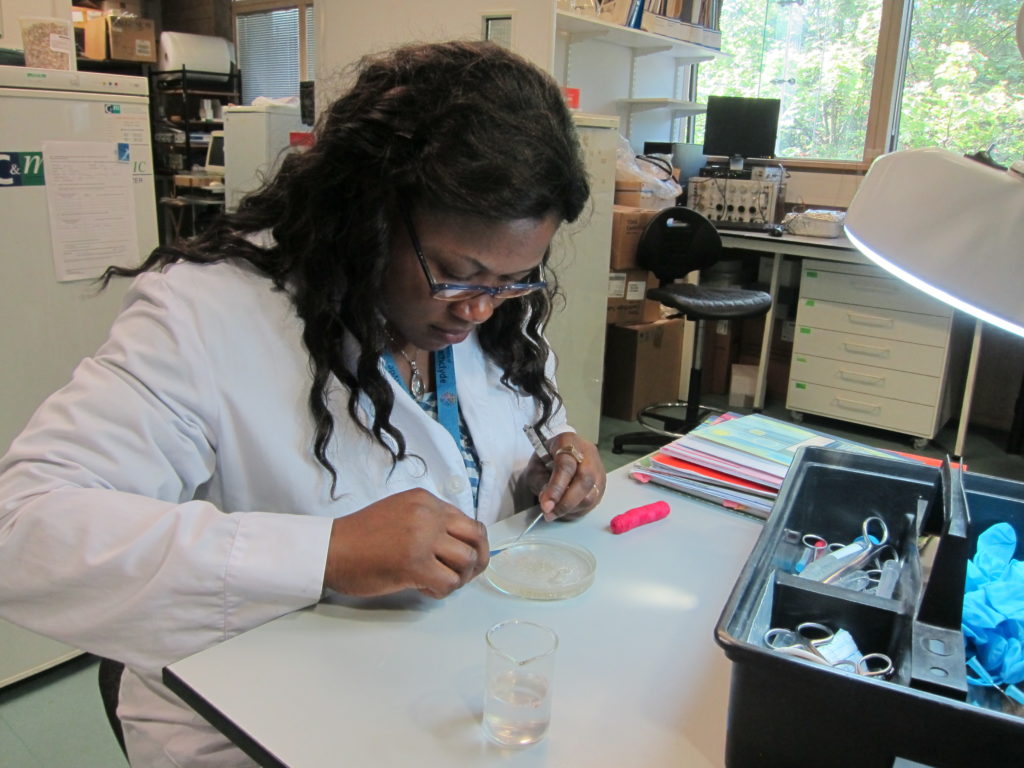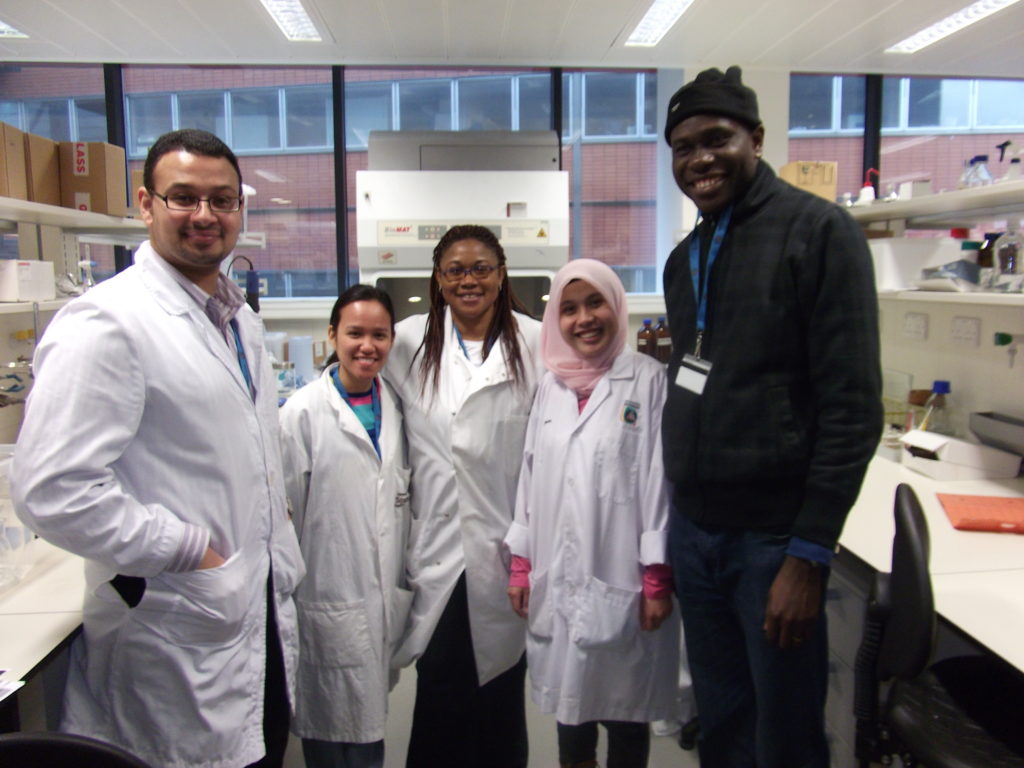To go beyond research
Dr. Enitome E. Bafor is a senior lecturer at the Department of Pharmacology & Toxicology, University of Benin, Nigeria.

Enitome Bafor has faced many hurdles during her research career: from developing a unique application for a metabolomic-pharmacology model to more recently tackling gender issues. As an early career researcher with a broad range of interests, she was hampered by a lack of research funding and equipment, up-to-date scientific literature, and technological infrastructure . “It was often daunting, trying to make effective changes,” she said. However, her passions have encouraged her to persist:
“I have had the opportunity to [.. ] gain membership into reputable international societies, and have been privileged to author several original scholarly research contributions in my field. However, many other researchers in Nigeria are yet to get hold of […] these opportunities. I became determined to assist in the search for solutions and opportunities for others as well, though I often received resistance rather than answers in most situations.”
Early in her career, Enitome received a Role Model Award from her students for her unique style of teaching and mentorship. She is passionate about getting her students involved in scientific research and showing them how research can do great things for society. She encouraged her students to conduct research and tap scientific literature from Research4Life. Not surprisingly, this left a significant impression on both her students and even their parents. She has gone on to found special award initiatives at her university to encourage women in their scientific careers.
“Considering my achievements so far as a young senior lecturer, a wife and a mother, I am motivated to accomplish more and inspire my mentees and students. Being a woman does not stop me.”
Enitome knows that her path has not always been easy. While many urge her to slow down, she continues to advocate fiercely with university administrators for up-to-date scientific information access—and the importance of using electronic resources in fields such as chemistry.
“It has really been a struggle but I am grateful knowing that my efforts […] are being recognized. It makes me try even harder,” she stated.

She has also become a driving force encouraging fellow researchers to apply for funding and strive for excellence, “I made an average of over 10 research grant applications in the past years, most of them have been unsuccessful, but I believe there are successes ahead as I do not intend to give up,” she added. In making her grant applications, she regularly accessed literature through Research4life, which significantly contributed to the strength of her applications. In 2016, Enitome successfully received funding from The World Academy of Sciences (TWASCOMSTECH) for research equipment.
“As a researcher in my institution and country, I intend to fully establish a research group and develop beneficial collaboration networks, contribute to policy and decision-making as they affect reproductive health in my country, contribute to the development and mentoring of younger colleagues in my field, and continue to advocate for research development and use of Research4life in my institution,” she explained.
This story is part of the Information in Action case study collection. Read more stories from Research4Life users.





